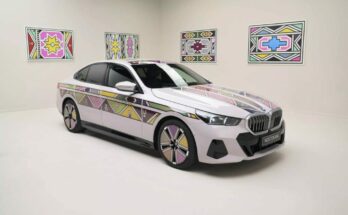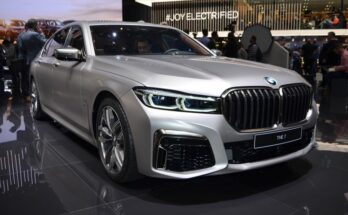BMW AG is set to become the first foreign car manufacturer to own a majority stake in a Chinese joint venture. This shows that Beijing is following through on a pledge to increasingly open up the economy to global corporations.
BMW plans to unveil the new ownership structure in its joint venture with Brilliance China Automotive Holdings soon, according to which the German company is set to boost its stake in the venture to at least 75%. BMW currently holds 50% of the BMW-Brilliance venture.
Related: China’s Automobile Revolution is Going Global
BMW Chief Executive Officer Harald Krueger was in Berlin at the start of the week during a summit between Chinese Prime Minister Li Keqiang and German Chancellor Angela Merkel. Among discussions were opportunities to open up China more to foreign investment. As part of corporate deals signed at the meeting, chemicals company BASF SE agreed to invest as much as $10 billion in a new factory in China that it would wholly own, also a first for the industry.

Owning a larger slice of BMW Brilliance Automotive would come at an opportune time for BMW. The company is heavily reliant on output from its factory in the U.S., where BMW makes SUVs for the global market. That strategy risks coming under strain as a trade war between the U.S. and China starts escalating, potentially raising the prices of vehicles exported from the U.S. Daimler AG already issued a profit warning a few weeks ago, citing the risk of falling demand from Chinese consumers for U.S.-made SUVs.
Related: Tesla Posts New Record Quarterly Loss: US$ 784.6 million
A move by BMW would follow plans outlined by China in April to ease foreign-ownership restrictions in the country, with the possibility that foreign automakers could eventually buy out their local partners. Global companies have for decades sought better access to the Chinese car market, now the world’s largest.
China also said in April it is scrapping the current 50% ownership cap for electric-car ventures as soon as this year. The cap for commercial vehicles will be eliminated in 2020 and the one for passenger vehicles will end in 2022.
On Tuesday, the Chinese Foreign Ministry said in a statement that China and Germany ‘for the first time reached the agreement on increasing the share of German automobile companies in the jointly invested projects in China.’

A computer animation professional with over 23 years of industry experience having served in leading organizations, TV channels & production facilities in Pakistan. An avid car enthusiast and petrolhead with an affection to deliver quality content to help shape opinions. Formerly written for PakWheels as well as major publications including Dawn. Founder of CarSpiritPK.com




